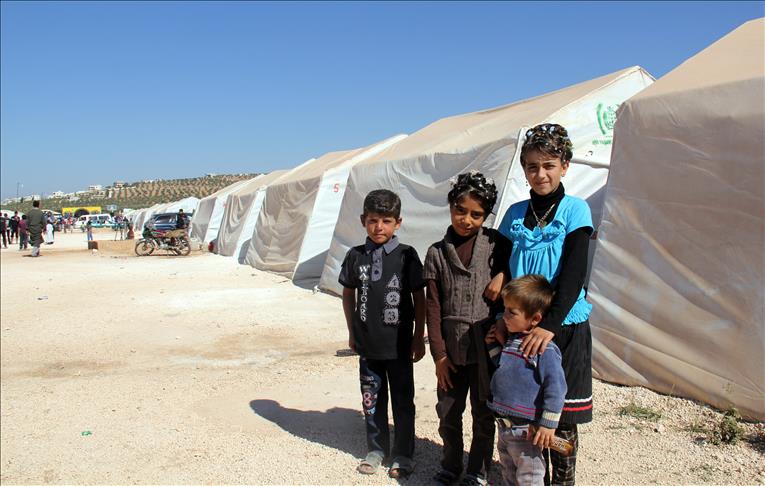
By Haydar Hadi and Betul Yuruk
Four of the tent cities are in Hatay, three in Sanliurfa, three in Gaziantep and one each in Kahramanmaras, Osmaniye Adiyaman, Mardin and Adana. Of the six prefabricated container homes, two are in Kilis and one each in Sanliurfa, Malatya, Hatay and Gaziantep.
About 600,000 refugees who live outside the camps across Turkey have their daily humanitarian needs and health services provided. Officially, more than 800,000 are currently living in Turkey.
According to the report, except for the limited contribution from international aid, the main financial burden of running the camps rests on the shoulders of Turkey alone. The country's spending exceeded $2.5 billion in April 2014 for the refugees, with Turkish nongovernmental organizations' aid providing over $500 million. However, Turkey received only around $183 million international aid for its refugees.
Although shelter, education and health facilities are provided in the camps of Iraq and Jordan, playing fields for children, meeting rooms and courses are rare.
Despite this, the refugees in Iraq's Kurdish region are pleased by the government's flexible camp policies, according to the report.
The reasons Syrians choose Jordan to shelter, according to the report, are its proximity, having relatives already in the country, sharing common culture and religious identity, the report said. The primary reasons for going to Iraq are listed as economic difficulties, unemployment and problems getting access to electricity and water.
The biggest problem facing Lebanon's refugees is that no official camps exist, which leads people to migrate either to some familiar regions of the country or to the neighborhood of their relatives.
After six months of fieldwork in the refugee camps in Turkey, Jordan, Iraq and Lebanon, Center for Middle Eastern Strategic Studies' project team prepared the report 'Condition of Syrian refugees in neighbor countries of Syria.'
During the fieldwork, the team met academics, opinion leaders, representatives of non-governmental organizations and Syrian people in all four of the countries.
Turkey has repeatedly called on the international community to share the burden of Syrian refugees.
Turkey now hosts over 1 million Syrian refugees, including unregistered refugees, who have come to the country since the war began in March 2011, said the director general of the Disaster and Emergency Management Presidency, Fuat Oktay.
"There are 70,000 students at refugee camps and around 40,000 adults are given vocational training," Oktay said at an Ankara based think-tank Thursday.
He said Turkey has spent $2.5 billion assisting Syrian refugees, and he added that pledges given by the international community for Syrian refugees are insufficient.
Referring to Turkey's policy of keeping its border with Syria open, he called on other countries to also open their borders for the Syrian refugees.


